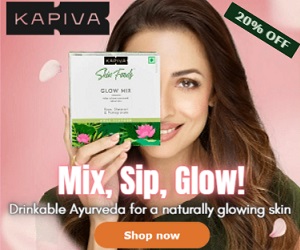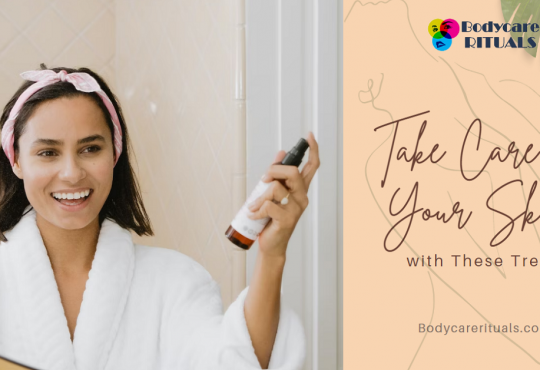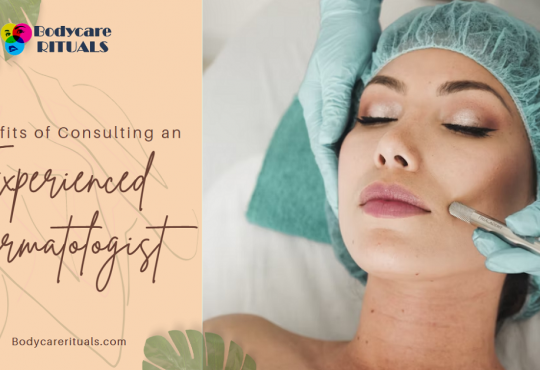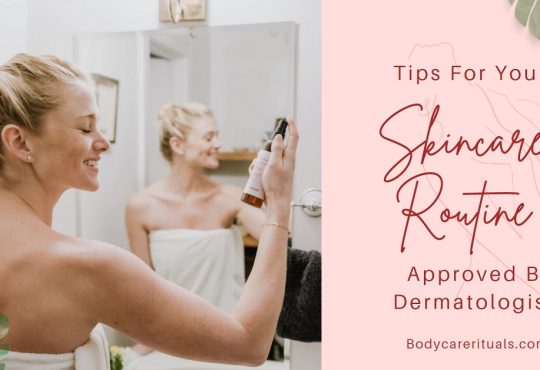Acne is a very common disease. Those who own it often have similar questions about it and its treatment. This section describes some common questions asked by people with acne. Keep in mind that a dermatologist is always the best source of specific information about your health issues, including acne.
Questions and Answer do follow:
1. What causes acne?
Answer: The cause of acne is related to the maturity of young people from childhood to adolescence (puberty). The hormones that cause the body to mature also cause the skin’s sebaceous glands (grease) to produce more sebum (grease). The hormone that mostly affects the sebaceous glands is androgens (androgens), which are found in both females and males, but in males, they are more abundant.
Sebaceous glands and hair shafts are found in one unit of the sebaceous glands. During puberty, the skin cells located within the follicles begin to fall off rapidly. People with acne are more likely to shed and stick together than people without acne. When cells are mixed with increased sebum production, they block the openings of the follicles. At the same time, the sebaceous glands continue to produce sebum, and the follicles swell with the sebum.
Also, normal skin bacteria called Propionibacterium acnes begin to multiply quickly in clogged hair follicles. In the process, these bacteria can produce irritating substances that can cause inflammation. Sometimes the follicle wall ruptures, spreading inflammation to the surrounding skin. This is the process of forming acne lesions from blackheads to acne to nodules.
2. I wash my face several times a day. Why do I still get acne?
Answer: Many people still think acne is caused by dirty skin. The fact is that washing alone will not clear or prevent acne. However, washing does help remove excess surface oil and dead skin cells. Many people use a variety of products, including alcohol-based cleansers and vigorous scrubbing, which will only further irritate the skin and exacerbate acne. Normally, you only need to wash gently with water and neutral soap twice a day.
3. Does stress cause acne?
Answer: Stress is usually attributed to the development of acne. Stress can have many physiological effects on the body, including hormonal changes that could theoretically cause acne. In some cases, stress may be caused by acne lesions, not the other way around! If acne is effectively treated, stress has little effect on most people.
4. I never had acne as a teenager. Why do I getting acne as an adult?
Answer: Usually, acne starts from adolescence and disappears in the early 1920s. In some cases, acne may persist into adulthood. These types of acne include severe forms that affect the body and face (males are more affected than females) and acne-related to women’s menstrual cycles. In other cases, acne may not appear until adulthood.
5. What role does diet play in acne?
Answer: Acne is not caused by food. A strict diet cannot clear the skin. Although some people believe that certain foods can exacerbate acne, especially chocolate, cola, peanuts, shellfish, and certain high-fat foods, there is no scientific evidence that foods can cause or affect acne. Avoid using any food that may worsen acne and eat a balanced diet for your overall health, but if you treat acne properly, it doesn’t matter.
6. Does the sun help acne?
Answer: Many patients feel that sunlight can improve the pathology of acne and go to great lengths to find a source of ultraviolet light. There is no effective effect of sunlight on acne. Also, ultraviolet rays in the sun increase the risk of skin cancer and early skin aging. Therefore, this is not the recommended acne treatment technique, especially since there are many other mature forms of acne treatment.
Also, many acne treatments increase the skin’s sensitivity to UV rays, thereby increasing the risk of UV exposure.
7. What is the best way to treat acne please suggest?
Answer: Acne for everyone must be treated individually. If you have tried acne products without good results, consider seeing the best dermatologists in Jaipur. The skin specialist will decide which treatment is best for you.
8. What kind of cosmetics items and cleansers can acne patients use?
Answer: Look for “non-comedogenic” cosmetics and toiletries. These products have been formulated not to cause acne. Some medications can cause irritation or significant dryness, especially in the first few weeks of treatment, and certain cosmetics and cleansers can exacerbate this effect. The choice of cosmetics and cleansers should be determined by your dermatologist or pharmacist.
Avoid heavy makeup. Most people with acne should choose pink blush and eye shadow over cream products because they are less irritating and acne-free. The camouflage technique can be effectively used by applying green undercover cosmetics on red acne lesions to promote color fusion.
9. Is it harmful to squeeze my blemishes?
Answer: Yes. Generally, acne lesions should not be squeezed or squeezed by the patient. In particular, inflammatory acne lesions of acne must never be squeezed. Squeezing forces the infected substance deeper into your skin, which causes inflammation & possible scarring.
10. Is there anything that I can do about scars caused by acne?
Answer: Getting rid of acne is best to prevent scar formation. Dermatologist in Jaipur can use various methods to improve the scars caused by acne. Individual treatment must always be tailored to a specific patient. Chemical peeling can be used in some patients, while microdermabrasion or laser abrasion may benefit other patients. Before using any procedure to relieve scars, acne must be well controlled.
11. How long does it take to see the visible results of my acne medications?
Answer: The improvement time depends on the product used, but in almost all cases, the improvement time is about weeks or months instead of days. Most dermatologists recommend using one drug or a combination of drugs daily for 4 to 8 weeks before changing the treatment. Patients need to pay attention to this time frame to avoid depression and discontinuation. Conversely, if you don’t see a change, you may need to consult a dermatologist to see if you need to change the treatment.
12. Would my medication to be used more frequently than prescribed to speed up acne clearance?
Answer: Never use medications as directed by a dermatologist. Applying topical medication more frequently than prescribed may cause skin irritation, redness, and clogged follicles, delaying cleaning time. If oral medication is taken more often than prescribed, the effect will not be better, but the chance of side effects is greater.
13. My topical treatment seems to work on the spots I am treating, but I keep getting new acne blemishes. What should I do?
Answer: Topical acne medications are made to work on all areas that are prone to acne, not just individual lesions. Part of the goal is to treat the skin and prevent it from forming before the lesions form, rather than just treating existing lesions. Patients are usually advised to treat all areas that are prone to rupture (forehead, cheeks, chin, and nose) rather than individual lesions.
14. My face is clear! Can I stop taking my medication now?
Answer: If your dermatologist says you can stop, then stop-but follow the instructions from your dermatologist. Many times, patients will stop taking the medicine suddenly, and acne will break out a few weeks later. If you use multiple products, it is recommended to stop one drug at a time and judge the results, then stop all at once. Before stopping any medication, consult a dermatologist.
15. Does it matter what time I take my medication?
Answer: Consult your dermatologist or pharmacist. If you take one dose of antibiotics daily, although you should choose once a day and take it throughout the treatment, you may be able to take it in the morning, noon, or evening. For oral medications twice daily or three times daily, you should try to distribute the dose evenly. Some antibiotics should be taken on an empty or almost empty stomach.
To get the best results from local treatment, you should strictly follow the advice of a dermatologist. For example, if you are instructed to use benzoyl peroxide in the morning and topical retinoids before bedtime, you must strictly follow these instructions. For example, if the two are used together at bedtime, the therapeutic effect may be reduced due to a chemical reaction, thereby reducing the therapeutic effect.
16. I have trouble remembering to take medication every day. What’s a good way to remember? What should I do if I forget to take medication?
Answer: This is a common problem. Many patients try to associate medication with daily activities such as brushing teeth or applying makeup. It also helps keep the drug close to areas where reminders are being conducted. In most cases, if you miss a day of oral treatment, don’t double it the next day; instead, resume your daily course as soon as possible but there may be different instructions for different oral medications. Ask your dermatologist or pharmacist what to do if you miss a specific medication.
17. I have been treating acne with topical benzoyl peroxide and oral antibiotics and I notice blue-black and brown marks on my face and some discoloration on my body. These marks are especially noticeable around acne scars and recently healed wounds. Is this a side effect of the drug and is it permanent?
Answer: It is not possible to make general statements about the side effects of drugs that apply to individual cases. A dermatologist should be consulted. In this case, the facial marks and body discolorations described by the patient are indeed within the scope of certain antibiotic side effects. In patients with acne treated with certain oral antibiotics, especially minocycline, sometimes unique patterns of pigmentation are seen.
The appearance of pigmentation patterns may include:
- Local blue-black or brown marks in and around acne scars.
- A cloudy appearance may cover most of the body.
- Brown pigmentation on feet and calves.
- Hereditary factors.
- An increase in male hormones found in both males and females.
- Menstruation.
- Emotional stress.
- Oil and grease from cosmetics, work environment.
After stopping treatment, the side effects of pigmentation gradually disappeared. Patients should pay attention to any side effects of the drug and get the attention of the best physician in Jaipur. Although most side effects are temporary, they should be discussed with your doctor and monitored.
18. My dermatologist is prescribing a topical retinoid for my acne, said a retinoid is a substance related to vitamin A. If the drug is related to vitamin A, shouldn’t vitamin A dietary supplements help get rid of acne?
Answer: Vitamin A in the diet is essential for health, especially vision. It has health effects on the skin. For safety reasons, large doses of vitamin A are not recommended for acne. Retinoids and retinoids are specially prepared for topical treatment of acne, especially because of their effective effect on cell wall shedding in sebaceous sacs. The dermatologist should monitor its use.
Vitamin A in the diet has various health effects on the human body. Vitamin A is essential for good vision. Extreme vitamin A deficiency can cause blindness, often with dry, scaly skin. The effects of an overdose of more than 5,000 IU of the recommended dietary allowance (RDA) of vitamin A are almost catastrophic. Excessive vitamin A excess causes blistering and peeling of the skin, this is the first effect seen in early Arctic explorers who almost died after eating polar bear livers with extremely high vitamin A content.
Topical retinoids are often prescribed as a treatment for moderate to severe acne. Side effects are mainly skin disorders, including redness, scaly and dry skin, itching, and burning. These side effects can usually be controlled by adjusting the amount and timing of retinoids applied to the skin. Dosage adjustments must be discussed with the prescribing dermatologist.
19. Is there any acne treatment specifically for people with dark skin? Is there a treatment that is particularly harmful to dark skin?
Answer: There are no acne treatments specifically for dark skin. Acne treatment is usually safe and effective for dark and light skin. Some treatments for acne scars may temporarily darken dark skin. Acne is a common skin disease that has the same etiology and follows the same process in all skin colors.
Darker or darker skin is less moisturizing than lighter skin. Topical anti-acne agents that have a drying effect on the skin, such as benzoyl peroxide, should be used under the guidance of a dermatologist. Benzoyl peroxide is also a strong bleaching agent, so it must be used carefully to prevent accidental discoloration of hair, towels, or clothing spots.
Darker skin is susceptible to pigmentation after inflammation (the skin becomes excessively dark where the skin is inflamed). Severe inflammatory acne can cause dark spots. These spots will break down over time; a dermatologist may be able to recommend cosmetic measures to make the spots disappear until they disappear. Some acne treatments for dark skin, such as topical retinoids and azelaic acid, may also help fade.
Removal of acne scars by skin abrasion or chemical peeling may cause the dark skin in the treated area to temporarily turn white or black. Discuss with your dermatologist or dermatologist before scar treatment.
Changes in pigmentation of melanin, such as vitiligo and melasma, are not related to acne, but they may coexist with acne. The diagnosis and treatment of melanin pigmentation disorders, such as vitiligo, requires a dermatologist with knowledge and experience in treating these diseases.
20. Is acne that appears for the first time in adulthood different from adolescence acne?
Answer: Acne has a specific definition of sebaceous follicles disease, this definition applies to acne that occurs at any age. However, it may be important to find the root cause of acne that first appears in adulthood.
The current understanding of the causes of acne vulgaris is described in the Main Text section why and how acne happens. Acne vulgaris develops when excessive sebum production, abnormal growth, and death of cells in the sebaceous follicle result in the plugging of follicles with a mixture of sebum and cellular debris and formation of comedones (blackheads & whiteheads).
21. Some acne researchers believe that, although this understanding is usually correct, the cause of acne vulgaris needs further study.
Answer: Acne that develops as an adult can be difficult to treat if it recurs multiple times. Some patients with severe recurrent acne have received repeated treatment with the powerful systemic drug isotretinoin. Acne episodes related to pregnancy or menstruation is caused by changes in hormonal patterns.
Acne appears for the first time in adulthood and its underlying cause should be investigated. Medications that cause acne include anabolic steroids (sometimes illegally used by athletes to “enhance” efficacy), some antiepileptic drugs, isoniazid and rifampin, lithium, and iodine-containing drugs.
Chlorinated industrial chemicals can cause occupational skin diseases called acne. Prolonged physical pressure on the skin (for example, a violin that is pulled up through a backpack and its straps or pulled at the angle of the jaw and chin) can cause so-called acne. Some metabolic conditions may cause changes in hormonal balance, which can induce acne.
Some lesions that appear to be acne may be another skin disease, such as folliculitis infections and hair follicle inflammation, which require different treatments than acne. Acne appears for the first time in adulthood and should be checked and treated by a dermatologist.
22. My 15-year-old daughter has what I call very mild acne. Constant picking and squeezing made her worse. She looked in the mirror for hours, looking for blackheads or blemishes that could be picked or squeezed. Does she need counseling?
Answer: The phenomenon of over-picking and squeezing that otherwise causes mild acne is called acne, which is most common in young women. Dermatologists can provide effective consultation. The typical person with acne is someone who is usually a young woman who is bothered by her appearance due to acne, so much so that she tries to “squeeze out acne”.
Acne is usually very mild, but because of the squeeze and exposed sores, the wound is often covered by people and leaves red and swollen marks. The word taunt refers to abrasions or abrasions of the skin. Excessive acne is a medically recognized disease and should be discussed with a dermatologist.
The temptation to occasionally succumb to blackheads is not defined as acne. For a few hours before the mirror, squeezing and picking each flaw is the definition of acne. A dermatologist may be able to advise patients on the treatments they can participate in, but remain “lazy.”
23. Can the rate of secretion or the composition of sebum be altered by a diet plan? If it can, then shouldn’t alteration of diet plan be considered a treatment for acne?
Answer: Diet plan has never been proven to have a role in the cause or treatment of acne. Dietary manipulation may have played an important role in the treatment of some scaling diseases of the skin, but not in the treatment of acne.
The dietary cause is one of the most enduring myths about acne. Diet plans, such as chocolate or greasy foods, don’t cause acne, but certain foods seem to make some people’s acne worse. No food is effective in preventing or treating acne. A healthy diet plan is of course, necessary for healthy skin.
24. Shouldn’t I just try to eliminate sebum from my body?
Answer: No. When it isn’t blocked in your skin pores then sebum helps keep your skin healthy.
25. Why does acne usually start at puberty?
Answer: No one knows for certain. What is known is that the sebaceous organ that produces sebum gets much larger at puberty than they were before.
26. Why does the skin around a pimple turn into red color?
Answer: This redness is caused by the body’s inflammatory response. Inflammation is a sign in which your immune system working to fight infection. However, the inflammatory system doesn’t always work perfectly, and can even be the cause of scarring.
27. If my skin turns into red color, does that mean that I’m going to have scars?
Answer: Usually, no. Even when there will be no permanent scar, the aftereffects of the inflammatory system can leave the skin red for months, sometimes for more than a year.
Kapiva products are natural and organic
 Kapiva brings a modern touch to Ayurvedic ingredients that gives nothing short of ‘Natural and Good Health. Kapiva creates Ayurvedic products with a modern touch, thus helping authentic Ayurvedic nutritionmeet the demands of convenience. For latest products and special discount offers visit kapiva.in today.
Kapiva brings a modern touch to Ayurvedic ingredients that gives nothing short of ‘Natural and Good Health. Kapiva creates Ayurvedic products with a modern touch, thus helping authentic Ayurvedic nutritionmeet the demands of convenience. For latest products and special discount offers visit kapiva.in today.








